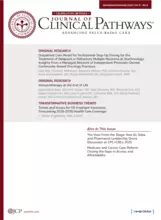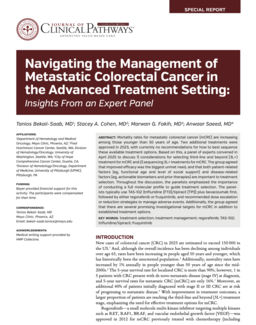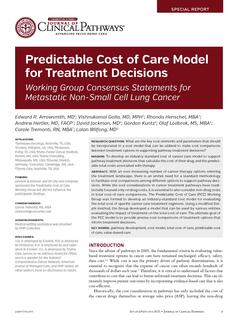Patient-Reported Outcomes Enhance Risk Stratification in Advanced Cancer Care
A recent study reveals how real-time patient-reported outcomes (PROs) can improve care for individuals with metastatic and advanced cancers by helping clinicians identify those at greatest risk and tailor supportive interventions accordingly.
The study, which included 132 patients (mean age 52; 84% female), applied a validated risk algorithm using the SF-12 Vitality Enhanced tool to assess both physical and mental health. Patients were stratified into low, medium, or high-risk categories based on how their scores compared to age- and sex-matched population norms.
At baseline, nearly half (48%) of participants were categorized as high-risk on mental health measures, and over a third (35%) on physical health. Patients then received multimodal virtual supportive care from a team including oncologists, mental health therapists, dietitians, and occupational therapists that are consistent with national guidelines for palliative care.
Follow-up results demonstrated measurable improvements. The percentage of high-risk patients decreased to 28% for mental health and 31% for physical health. Meanwhile, the proportion of low-risk patients rose to 49% and 56%, respectively. Mapping mental and physical health scores onto a two-axis matrix allowed clinicians to pinpoint high-complexity cases—those struggling both physically and mentally—supporting more precise clinical decision-making.
“PROs can be used to establish and follow risk-stratified pathways,” concluded the authors.
The findings underscore the promise of integrating PROs into cancer care to address the unique challenges of survivorship, including prognostic uncertainty and fluctuating symptom trajectories. By using this model, clinicians can better manage disease burden, support adherence, and tailor interventions to evolving patient needs.
Reference
Litton G, Librett J, Kosinski M. Real world risk-stratified clinical pathways for cancer care management. Presented at the 2025 American Society of Clinical Oncology Annual Meeting; May 30-June 3, 2025. Chicago, Illinois.













